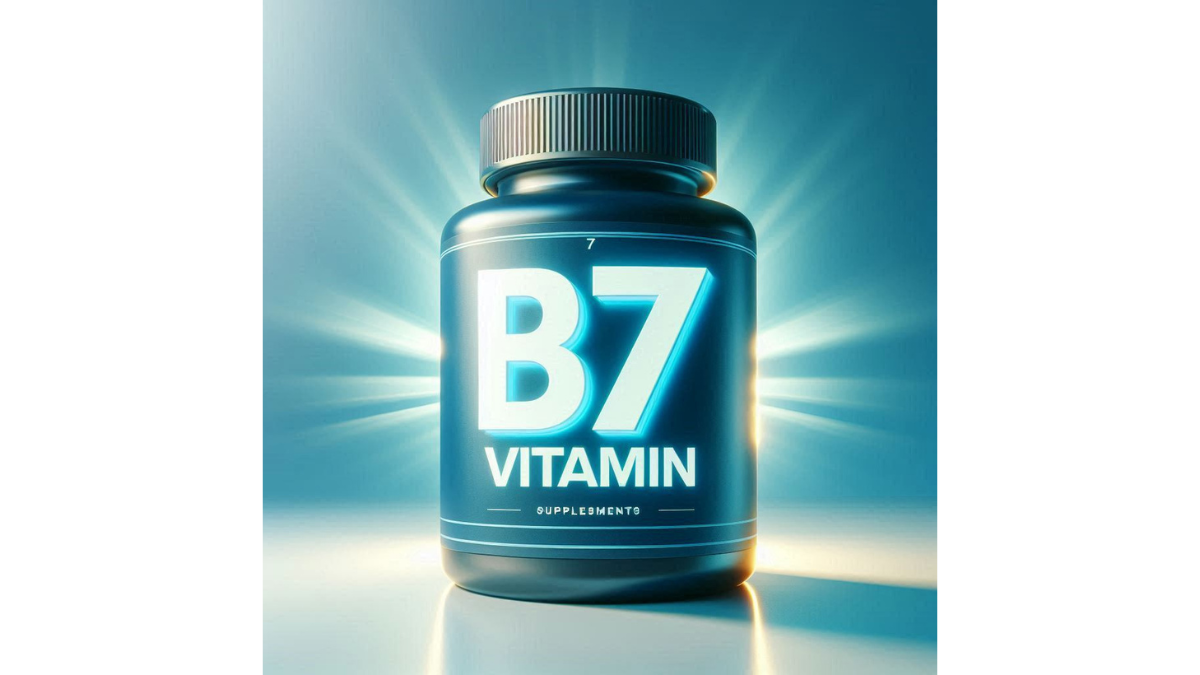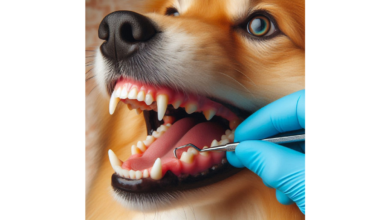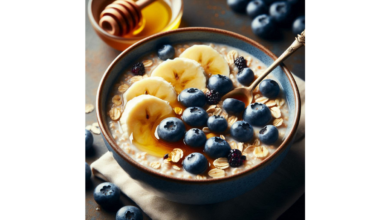The Essential Guide to Understanding the Benefits of B7 Vitamin

The Essential Guide to Understanding the Benefits of B7 Vitamin – If you’ve ever glanced at multivitamin labels or health articles, you’ve likely encountered a mention of various B vitamins. Among these, Vitamin B7, also known as biotin, has gained attention for its essential role in maintaining health and vitality. Let’s delve into what B7 Vitamin is, and why it’s critical for your body.
What is B7 Vitamin?
Vitamin B7, or biotin, is a water-soluble vitamin that plays a crucial role in the body. It’s part of the B-complex family of vitamins, which work harmoniously to support various bodily functions. Biotin is best known for its contributions to hair, skin, and nail health, but its importance goes far beyond mere aesthetics. Biotin acts as a coenzyme for several carboxylase enzymes, which are critical for the metabolism of carbohydrates, fats, and proteins.
The body cannot produce biotin independently, which means you need to obtain it from your diet. That’s why incorporating biotin-rich foods or supplements into your life can be beneficial. Many may not realize they are getting enough biotin daily because the body requires only a small amount. In fact, according to the National Institutes of Health, the average adult requires about 30 micrograms of biotin each day. You might be surprised to find that biotin deficiencies are quite rare, thanks largely to our ability to obtain it from various food sources.
Importance of B7 Vitamin in the Body
The importance of B7 Vitamin cannot be overstated. It plays several vital roles that ensure your body runs smoothly. Here are just a few reasons why you should pay attention to your biotin intake:
- Metabolism regulation: Biotin is essential for converting nutrients into energy. It aids in the breakdown of fats, carbohydrates, and proteins, which means it supports everyday energy production.
- Healthy hair, skin, and nails: You may have heard of biotin as the “beauty vitamin.” Biotin helps maintain the integrity of hair, skin, and nails. It contributes to the growth of healthier hair and can improve the appearance of nails, making them less brittle.
- Supports pregnancy and breastfeeding: Women’s biotin levels often increase during pregnancy and breastfeeding. Sufficient biotin intake is essential during these times to support fetal development and maternal health.
- Blood sugar regulation: Some research suggests that biotin may help regulate blood sugar levels, which could be helpful for individuals managing diabetes.
- Nervous system health: Biotin is involved in the synthesis of neurotransmitters, which are essential for proper nervous system function. It may enhance brain function and cognitive activity.
In my personal experience, I began paying attention to my biotin intake when I noticed my hair lacked its usual luster and was more prone to split ends. After incorporating biotin-rich foods, such as eggs and nuts, into my diet, I noticed significant improvement in just a few weeks. Feeling more confident in my hair’s resilience worked wonders for my overall self-esteem! To put it succinctly, here are some key points about the importance of B7 Vitamin in the body:
| Function of B7 Vitamin | Impact on Health |
|---|---|
| Energy metabolism | Converts nutrients into energy, essential for daily activities. |
| Hair, skin, and nail health | Promotes healthy hair growth and strengthens nails. |
| Fetal development | Supports maternal and fetal health during pregnancy. |
| Blood sugar regulation | May aid in controlling blood sugar levels. |
| Nervous system health | Contributes to neurotransmitter synthesis for proper brain function. |
Ensuring you consume enough B7 Vitamin is essential for maintaining your overall health and well-being. In the upcoming sections, we will explore various food sources rich in biotin, the health benefits of this important vitamin, and what to watch for in case of deficiency. Whether you’re looking to boost your health or simply want to understand your body better, the Essential Guide to Understanding the Benefits of B7 Vitamin can provide insight into how this small but mighty vitamin can make a big difference. Stay tuned as we uncover more about the extraordinary role of B7 Vitamin in maintaining not just our looks, but also our vitality and energy!
Sources of B7 Vitamin
Now that we understand what B7 Vitamin is and its significance in the body, the next question is: where can you get this essential nutrient? You can obtain biotin from both foods and dietary supplements. Let’s explore each of these sources in detail to ensure you’re getting enough of this vital vitamin in your daily routine.
Foods Rich in B7 Vitamin
Incorporating biotin-rich foods into your diet is a delicious and effective way to meet your B7 Vitamin needs. Here are some fantastic sources to consider:
- Eggs: The egg yolk is a particularly rich source of biotin. However, it’s crucial to cook the eggs, as raw egg whites contain avidin, a protein that binds biotin and can inhibit its absorption.
- Nuts and Seeds: Almonds, walnuts, and sunflower seeds are not only nutritious but also packed with biotin. They make for a great snack or addition to salads and smoothies.
- Legumes: Foods such as peanuts, soybeans, and lentils contain good amounts of biotin. They’re versatile ingredients that can be used in various dishes, from stews to hummus.
- Whole Grains: Oats and barley are excellent sources of biotin. Starting your day with a bowl of oatmeal could give you a significant biotin boost.
- Dairy Products: Milk, cheese, and yogurt provide biotin and are delicious additions to many diets. Enjoying a slice of cheese with whole-grain crackers can be both satisfying and beneficial.
- Mushrooms: Certain varieties, especially shiitake mushrooms, are also a good source of biotin. Besides, they can add a savory umami flavor to your meals.
- Cauliflower and Avocado: These trendy foods not only supply biotin but also come packed with additional nutrients, making them great for your overall health.
To give you a clearer picture, here’s a quick look at the biotin content in some common foods:
| Food Source | Biotin Content (micrograms per 100g) |
|---|---|
| Eggs (cooked) | 20 |
| Almonds | 50 |
| Peanuts | 25 |
| Whole oats | 27 |
| Cauliflower | 17 |
| Avocado | 20 |
Incorporating these foods into your diet can be both enjoyable and beneficial. Just imagine starting your day with a hearty omelet filled with veggies or enjoying a nutty trail mix as an afternoon snack!
Dietary Supplements Containing B7 Vitamin
While it’s always best to obtain nutrients from food, dietary supplements containing B7 Vitamin can be a practical option for some individuals. Supplements can help fill the gap if you’re following a restrictive diet, have a medical condition, or are concerned about your biotin levels. Here’s a breakdown of the main types of biotin supplements available:
- Standalone Biotin Supplements: These are the most common forms and come in various dosages, typically ranging from 30 to 10,000 micrograms. When choosing, look for reputable brands that adhere to quality standards.
- Multivitamins: Many multivitamin formulations include biotin alongside a blend of other essential vitamins and minerals, making it easier to cover your nutritional bases.
- Hair, Skin, and Nail Formulas: Some products specifically target beauty, often labeled as “hair, skin, and nail” supplements. They typically contain biotin along with other vitamins, such as Vitamin E and folic acid.
It’s important to remember that before starting any new supplement, consulting with a healthcare professional is advisable, especially if you have underlying health conditions or are pregnant. In my experience, I once tried a biotin supplement in an attempt to boost my hair health after a winter that left it feeling dry and lifeless. I noticed subtle changes, eventually leading to improved texture and more shine. However, I paired the supplement with my biotin-rich diet for the best outcomes. When considering supplementation, here are a few essential tips:
- Check Dosage: Follow the recommended daily intake, and never exceed that unless advised by a healthcare provider.
- Read Labels: Look for certifications from third-party testing organizations to ensure product safety and quality.
- Monitor Your Body’s Response: If you notice any adverse reactions, discontinue use and consult a medical professional.
In conclusion, sourcing enough B7 Vitamin can be as simple as adopting a balanced diet enriched with biotin-rich foods or exploring supplementation if necessary. By doing so, you’ll be taking an essential step toward maintaining your hair, skin, and overall health. As we move forward, let’s delve into the remarkable health benefits that B7 Vitamin has to offer!
Health Benefits of B7 Vitamin
Having covered the sources of B7 Vitamin and how you can easily incorporate it into your life, it’s now time to explore the remarkable health benefits that this vitamin brings. Vitamin B7, or biotin, plays a multitude of roles in keeping your body functioning optimally. Let’s dive deeper into two primary areas: hair and skin health, and how biotin contributes to metabolism and energy production.
Hair and Skin Health
One of the most celebrated benefits of B7 Vitamin is its impact on hair and skin health. If you’ve ever flipped through a beauty magazine, you’ve probably seen biotin touted as a miracle worker for hair and skin. But what’s the science behind these claims?
- Promoting Hair Growth: Biotin plays an essential role in the metabolic processes of amino acids, which are the building blocks of proteins. Since hair is primarily made of a protein called keratin, biotin is crucial. Studies suggest that individuals with thinning hair often have lower levels of biotin. By supplementing or increasing biotin intake through diet, many have reported noticeable improvements in hair density and shine.
- Strengthening Nails: Biotin can also fortify your nails. If you experience brittle nails that break easily, incorporating more biotin can be beneficial. Research indicates that biotin supplementation can increase nail thickness, making them stronger and less likely to split.
- Skin Health: The skin also reaps the benefits of biotin, as it plays a part in fatty acid metabolism, which keeps your skin hydrated and helps maintain its barrier function. Many skincare products now include biotin due to its rejuvenating effects. Additionally, those with biotin deficiencies may notice skin rashes or dryness.
In my own journey, I remember dealing with brittle nails that seemed to break no matter how careful I was. After including biotin-rich foods like eggs and avocados into my diet, along with a biotin supplement, I started to notice a dramatic improvement in my nail strength. It felt empowering to see the positive changes, and my confidence took a boost alongside it!
Summary of Hair and Skin Benefits:
| Benefit | Explanation |
|---|---|
| Promotes hair growth | Vital for keratin production, leading to thicker hair. |
| Strengthens nails | Increases nail thickness, reducing brittleness. |
| Improves skin health | Enhances hydration and barrier function, promoting glow. |
Metabolism and Energy Production
Beyond its role in beauty, B7 Vitamin is a powerhouse when it comes to metabolism and energy production. The body requires biotin to convert the food you eat into usable energy.
- Carbohydrate Metabolism: Biotin is pivotal for the metabolism of carbohydrates. It helps convert glucose into energy, stimulating your body to utilize the sugars you consume effectively. This is particularly important for those engaging in regular physical activity, as it fuels your workouts.
- Fat and Protein Metabolism: B7 Vitamin doesn’t stop with carbs; it’s also involved in the metabolism of fats and proteins. By enabling the synthesis of fatty acids, biotin supports a healthier lipid profile. It helps break down proteins into amino acids, which can then be utilized for various bodily functions.
- Regulation of Blood Sugar Levels: There is emerging research indicating that biotin may help regulate blood sugar levels in individuals with diabetes. While more studies are needed, some studies suggest biotin acts alongside insulin to improve glucose metabolism. This could be especially beneficial for those struggling to maintain balanced blood sugar levels.
Here’s a concise overview of how biotin aids in metabolism and energy production:
| Function | Impact on Health |
|---|---|
| Carbohydrate metabolism | Converts sugars into energy, essential for daily function. |
| Fat and protein metabolism | Aids in breaking down fats and proteins for energy use. |
| Potential blood sugar regulation | May help improve glucose metabolism and insulin sensitivity. |
In my own experience, I’ve noticed an uptick in my energy levels after committing to a balanced diet rich in biotin. I remember days where I felt lethargic or crashed mid-afternoon. After including more biotin-rich foods and staying mindful about my nutrition, I found myself feeling more energized and ready to tackle the day. In summary, the health benefits of B7 Vitamin are extensive and far-reaching. Whether aiming for radiant hair, resilient nails, or improved energy levels, biotin can play a vital role in your overall wellness. As we continue to explore the topic of B7 Vitamin, the next logical step is to understand what happens when you don’t get enough of this essential nutrient. Let’s look into B7 Vitamin deficiency and the associated symptoms in the following section!
B7 Vitamin Deficiency
After exploring the incredible benefits of B7 Vitamin, you might be wondering: what happens if I don’t get enough of it? While B7 Vitamin (biotin) deficiencies are relatively rare, they can lead to various uncomfortable symptoms and health issues. In this section, we’ll delve into the symptoms of B7 Vitamin deficiency and examine the risk factors that could make you more susceptible.
Symptoms of B7 Vitamin Deficiency
When the body lacks sufficient biotin, it can manifest through several signs and symptoms. Recognizing these early can be key to addressing the deficiency and restoring your health. Here are some common symptoms:
- Hair Loss: One of the most apparent signs of biotin deficiency is hair loss. People with low biotin levels may notice that their hair becomes thin and brittle, leading to increased shedding.
- Skin Issues: A lack of B7 Vitamin can result in dry, scaly skin, often referred to as seborrheic dermatitis, especially on the scalp and face. This condition can lead to rashes and irritation, causing discomfort and often requiring treatment.
- Brittle Nails: If your nails are prone to breaking and splitting, it could be a sign of inadequate biotin. Healthy biotin levels contribute to nail strength, so deficiency can leave them weak and fragile.
- Fatigue: Since biotin plays a pivotal role in energy metabolism, a deficiency may leave you feeling sluggish or fatigued. Low energy levels can affect your daily activities and overall quality of life.
- Depression and Mood Changes: Some studies have indicated that biotin deficiencies could also lead to changes in mood or cognitive function. Individuals may experience feelings of depression or anxiety, affecting their mental well-being.
- Neurological Symptoms: In more severe cases, biotic deficiencies can lead to neurological symptoms such as numbness, tingling in the extremities, or cognitive decline. These symptoms underscore the importance of biotin’s role in the nervous system.
Recognizing these symptoms can be crucial. If you notice several of these signs in combination, it might be worth discussing with a healthcare professional who can help assess your biotin levels and provide guidance.
Summary of Symptoms of B7 Vitamin Deficiency:
| Symptom | Description |
|---|---|
| Hair loss | Thin, brittle hair leading to increased shedding. |
| Skin issues | Development of dry, scaly skin, particularly on the scalp. |
| Brittle nails | Increased fragility of nails, leading to frequent breakage. |
| Fatigue | Low energy levels affecting daily activities. |
| Mood changes | Feelings of depression or anxiety. |
| Neurological symptoms | Numbness, tingling, or cognitive decline. |
Risk Factors for B7 Vitamin Deficiency
While it is possible to develop a B7 Vitamin deficiency, certain factors can increase your risk. Understanding these risk factors is important for taking proactive steps in maintaining optimal health.
- Dietary Choices: Individuals who follow strict diets, such as vegan or vegetarian diets, may be at higher risk if they don’t consciously include biotin-rich foods. Since animal products like eggs and dairy are good sources of biotin, those avoiding these may need to find alternative sources or consider supplementation.
- High Consumption of Raw Egg Whites: Consuming large amounts of raw egg whites can lead to biotin deficiency. Raw egg whites contain avidin, a protein that binds to biotin, preventing its absorption in the body. Cooking eggs neutralizes avidin, allowing you to reap the benefits of biotin without the risk.
- Certain Medical Conditions: Individuals with certain health conditions, such as gastrointestinal disorders (like Crohn’s disease) that impact nutrient absorption, are at risk for deficiencies. These conditions can hinder the body’s ability to absorb sufficient biotin from food.
- Pregnancy and Breastfeeding: Pregnant and breastfeeding women may have higher biotin requirements. Changes in metabolism and increased demand from the developing fetus can put them at risk if their intake isn’t adjusted accordingly.
- Genetic Factors: Rare genetic disorders, such as biotinidase deficiency, can affect the metabolism of biotin and lead to deficiency. While these cases are uncommon, they highlight the complexity of nutrient absorption in the body.
To mitigate these risk factors, consider the following preventive measures:
- Diversify Your Diet: Ensure you’re incorporating a range of biotin-rich foods into your meals, focusing on eggs, nuts, seeds, and legumes.
- Cook Your Eggs: If you enjoy egg-based dishes, make sure to cook them thoroughly. This simple step can help avoid avidin-related absorption issues.
- Consult a Healthcare Professional: If you suspect you are at risk or are experiencing symptoms, speak with a professional. They can help assess your biotin status and offer tailored dietary recommendations.
In conclusion, staying aware of the potential symptoms of B7 Vitamin deficiency and understanding your risk factors can empower you to take proactive steps in maintaining your health. In our next section, we’ll discuss biotin supplementation, including recommended daily intake and key considerations to keep in mind before starting any supplements. Your journey toward understanding the essential benefits of B7 Vitamin is just getting started!
B7 Vitamin Supplementation
Having explored the symptoms and risk factors associated with B7 Vitamin deficiency, you may now be wondering how to ensure you’re meeting your biotin needs effectively. Supplementation can be a viable option if dietary sources alone aren’t sufficient. In this section, we’ll discuss the recommended daily intake of biotin and the critical considerations to keep in mind before adding supplements to your routine.
Recommended Daily Intake
The recommended daily intake of biotin varies depending on age, gender, and life stage. Here’s a quick breakdown of the biotin requirements according to the National Institutes of Health:
| Age Group | Recommended Daily Intake (micrograms) |
|---|---|
| Infants 0-6 months | 5 |
| Infants 7-12 months | 6 |
| Children 1-3 years | 8 |
| Children 4-8 years | 12 |
| Children 9-13 years | 20 |
| Adolescents 14-18 years | 25 |
| Adults (19 years and older) | 30 |
| Pregnant women | 30 |
| Breastfeeding women | 35 |
As you can see, adults typically require around 30 micrograms of biotin daily. It’s worth noting that while these guidelines offer a general framework, individual needs can vary based on lifestyle factors like activity level, diet, and overall health. For instance, I remember a time when I was training for a marathon. I became more conscious about my nutrition and found that increasing my biotin intake helped me maintain energy levels during my training sessions. A balanced diet, supplemented by biotin-rich foods, led me to feel more empowered in my performance!
Considerations Before Taking B7 Vitamin Supplements
If you’re contemplating adding B7 Vitamin supplements to your wellness routine, there are several essential factors to consider:
- Assess Your Current Diet: Before jumping in, evaluate your current diet. Are you already consuming a balanced intake of biotin-rich foods? If so, there might be no need for supplementation. It’s often best to obtain nutrients from natural sources whenever possible.
- Consult a Healthcare Professional: Talk to a doctor or a registered dietitian before starting any supplements. They can help assess your individual needs and determine if you truly require additional biotin based on your health status, lifestyle, and dietary habits.
- Choose Quality Products: If you do decide to go the supplement route, ensure you choose high-quality, reputable brands. Look for products that have been tested for purity and potency by third-party organizations. This way, you can be confident that what you’re taking is safe and effective.
- Understand Dosages: Biotin supplements come in various dosages, ranging from a few micrograms to several thousand. While higher doses might be marketed for hair, skin, and nail support, it’s crucial to stick to recommended dosages unless advised otherwise by a healthcare professional. Excessive consumption of biotin is rarely harmful but may cause skin reactions in some individuals.
- Monitor Your Body’s Response: After starting supplementation, keep an eye on how your body responds. Track any changes in energy levels, hair growth, or skin health. This feedback can help you determine if the supplement is working for you or if adjustments are needed.
- Potential Interactions: Be mindful of potential interactions with other medications or supplements you may be taking. Biotin is generally safe, but certain medications, particularly anticonvulsants, may affect biotin metabolism. Always inform your healthcare provider about all supplements and medications you’re using.
In summary, while B7 Vitamin supplementation can be a beneficial way to support your health, particularly if you’re at risk of deficiency, understanding your unique nutritional landscape is vital. With the right approach, you can leverage the power of biotin to enhance your energy, beauty, and overall well-being. As we wrap up this comprehensive guide on the benefits of B7 Vitamin, remember that every body is different. Taking care to assess your needs will empower you to make informed decisions about your health. Whether through a rich diet or thoughtful supplementation, supporting your biotin levels can significantly impact your vitality!
You might also find this article helpful Bone Health: Building Strong Bones





